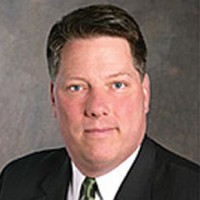
ACAMS Today caught up with Peter Warrack, head of investigations with the AML Financial Intelligence Unit (FIU) at the Royal Bank of Canada (RBC) for an enlightening interview to discuss financial crimes in both the private and public sectors.
ACAMS Today: Tell us about your professional and educational background?
Peter Warrack: I served with the British Army for twelve years, first as an electronics specialist (radar and guided missiles) and then working in military intelligence in Northern Ireland where I worked closely with law enforcement.
Joining the police was a natural progression. I became a senior detective dealing with serious terrorist crimes, including financial crimes and at one point heading the Fraud Squad in Northern Ireland and as a result engaging with law enforcement internationally.
I have a degree in management and a master's degree in organization and management. I have other accounting exams, diplomas and certifications including CAMS.
AT: How did you become involved with your current position at the RBC?
PW: RBC approached me when I was presenting at a fraud conference in the United States on the subject of intelligence-led investigations. In 2002, I left the police to lead RBC's intelligence effort and our efforts turned out to be extremely successful.
Soon I was immersed in major investigations and projects addressing both fraud and money laundering and, because of my experience, I was in a position to make a real difference in mitigating criminal risk to the bank and the wider financial industry.
In September, 2010 I left the 'fraud side' to lead the investigative effort focused on anti-money laundering and terrorist financing (TF), although fraud and AML work very closely as a partnership.
AT: What counsel would you give professionals who are considering transferring from the public to the private sector?
PW: My counsel is directed to law enforcement professionals (police detectives) with relevant experience seeking to join the private sector in the area of AML/TF investigations.
Not everyone successfully makes the transition to the private sector for a number of reasons and without doubt certain law enforcement skills are highly applicable to the private sector. The biggest challenges faced when joining the private sectors are differences in cultural environment, focus and expectations.
In my experience, the law enforcement environment is more disciplined and bureaucratic than in the corporate world, which tends to be less hierarchical, more informal, more dynamic, flexible and empowering. Generally in the corporate world, managers/leaders tend less to tell staff what to do, but rather identify what needs to be done, provide the tools and support to do it and let staff work out how to do it within set parameters/guidelines in a way that contributes to the organization's vision and goals.
In law enforcement detectives are assigned investigations and essentially often left to their own devices to work them to a conclusion, often without strict timeframes. The objective (focus) of the investigation is usually to solve a crime and prosecute the offender using the evidential standard of proof beyond a reasonable doubt.
In the corporate world volumes of investigations can be much higher and are conducted using a risk-based approach, applying rigid timeframes rather than solving crimes; the outcome is to first decide if something is suspicious or not using a lesser standard of proof (on the balance of probability) and secondly, to decide if the client relationship should be retained.
The impact of AML decisions can also be more complex than in the law enforcement world and have a greater 'cost' that affects the business' bottom line. For example, the decision to divest a client can impact many business and product lines and may require complex negotiations with senior leaders across the business lines before a final agreement can be achieved.
The difference between the approach to investigations means that there can be a tendency for ex-law enforcement persons to conduct their investigations in too much depth and without the tools to which they are accustomed (e.g., criminal databases). As a result AML productivity suffers and the investigator may feel scrutinized.
To avoid the above, it is essential during hiring interviews that the investigation objectives and expectations are clearly identified to candidates and it is equally incumbent upon the candidates to ensure that they understand them up front.
On the other hand skills learned in law enforcement such as investigation management, crisis management, interpersonal skills and most importantly, critical thinking skills, together with relevant knowledge of the workings of predicate offences can provide investigators with the opportunity to shine if able to adapt to the cultural corporate fit.
AT: You have worked both in the public and private sectors, what advice would you give to compliance and law enforcement professionals on how to build successful partnerships?
PW: Bottom line is take time to proactively reach out to each other with the attitude of making things work and bringing something to the table to share including best practice.
Something very valuable that the private sector has to offer, or certainly the international banks, is the power of their analytical capability and techniques.
I have noticed a recent development in Canada of law enforcement officers working proceeds of crime being required to complete their CAMS certification, which then opens networking, mutual training and partnership opportunities.
AT: As a law enforcement professional, what was the hardest challenge you faced when investigating financial crimes?
PW: Interesting question. Without a doubt in international investigations the bureaucracy of the Mutual Legal Assistance Treaty (MLAT) process in formally exchanging information and intelligence. However, the informal network that exists internationally between law enforcement is very effective but for obvious reasons can't be used for court purposes.
AT: In your many years of working to prevent financial crimes what are the most important lessons you have learned?
PW: Think strategically and big picture, but at the same time deliver strong tactically by using an intelligence-led approach. An intelligence-led approach is not just having an intelligent person, unit or team, but also means developing the culture of intelligence throughout the relevant parts of the organization whether it be fraud or AML.










